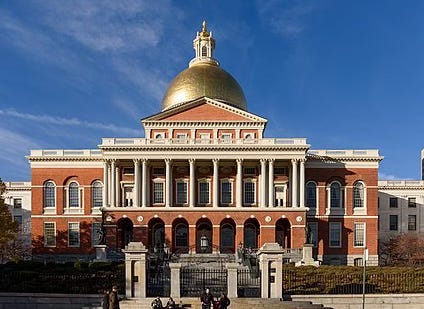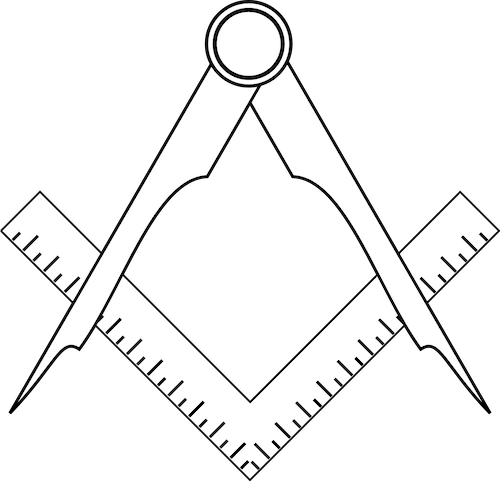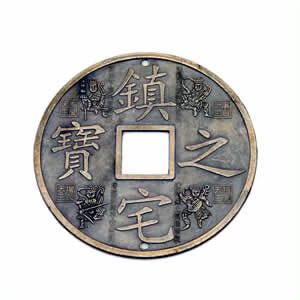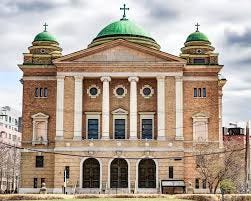“Remember the Sabbath day, to keep it holy.” (Exodus 20:8)
This talk was given to the Boston Fellows in September, 2024.
Sabbath is the end or purpose of work, not the other way around.
The six days are for the sake of the seventh. We don’t rest just to go back to work. We work toward a place of celebration and joy and relationship and rest with Jesus and with one another.
And so, I want to take this opportunity to reenforce some of those ideas and encourage you to grow in their practice.
Keep it strange. Keep the Sabbath strange.
On Mt. Sinai, Moses received ten commandments from God, including this one: “Remember the Sabbath day, to keep it holy.” (Exodus 20:8)
What does “holy” mean?
The “holy” is different, it is set apart, it is “other,” unknown, and fearful.
In the Bible, even a favorable encounter between sinful human beings and the holy is accompanied with this divine reassurance: “Fear not.” Because the holy terrifies.
The holy is also beautiful, wonderful. It inspires worship, adoration, amazement.
But it is never comfortable or commonplace.
The penalty for not remembering the Sabbath, for not keeping it holy, was death: “Whoever does any work on the Sabbath day shall be put to death.” (Exodus 31:15) Shocking.
But if that’s not strange enough, the Sabbath is also rest, renewal, refreshment, joy, and ”delight.” We are commanded to “keep it a delight.” Sabbath is community, relationship, celebration, feasting. It is shalom.
Still more strangeness: On the seventh day, “God rested.”
The ancient world of Israel’s neighbors had their own creation stories, but though there are similarities, the Genesis creation account differs dramatically from them. For example, the Hebrew God creates alone, without opposition or company. Genesis often calls this God “the Almighty.” God above all. God without peer. God of all power.
So this God “rested”?
More than that, this God “was refreshed”?! (Exodus 31:17) What can that mean?
And finally, we have this strange instruction: “Strive to enter that rest.” (Hebrews 4:11) We “strive” for rest?
Holy terror and joy. Death and delight. The Almighty resting, omnipotence refreshed. Striving for rest. These are strikingly odd pairings of ideas.
Maybe they are not meant to pair well. Perhaps they are paradoxes to contemplate, endlessly.
The unbelieving mind may just dismiss them.
The scientific mind wants a systematic answer.
The worldly mind sees just another anthropomorphism.
But the faithful mind loves to contemplate this strange and beautiful light. Not that all these questions can be answered fully, but so that we can connect the dots and experience more of what God has for us.
Remember the sabbath day, to keep it strange.
Tomorrow we will look at the topic “Why work?” Why do we work?
We will look at the six days of creation.
One thing that we will touch on, but only briefly:
The first six days are rectangular or cuboid—six-sided—and this has a perfection of its own.
So six is the number of production and reproduction.
Six is the number of the human.
And as long as six is under seven, human under heaven, it’s good.
But when humanity rebels, it is not good. There is a trail of the number six from Genesis to Revelation. And six eventually becomes 666.
I’d be happy to talk about that later, but it’s important to note that 666 is not the end of the story.
The New Jerusalem descends out of heaven, and it is a perfect cube, if you look at its dimensions, designed and built by the Everlasting Architect and Builder, our Lord Jesus Christ.
That’s another topic.
But this talk is about the number 7.
I want to talk about the way it was created to be.
Six and seven are related this way:
“Six days you shall labor, and do all your work, but the seventh day is the Sabbath of the LORD your God.” (Exodus 34:21)
In its favorable usage of the number six, the Bible presents it as the prelude to seven. Six needs seven. Seven completes and redeems six. Six, “but” seven:
Six “days” of divine creation, but the seventh “day” of divine “rest.”
Six days of regular human work, but the seventh day of human rest.
Six days of clouds covering God’s glory on Sinai, but on the seventh, God speaks. (Exodus 24:16)
Six years of debt, but on the seventh, it’s forgiven.
Six years of bond-service, but then freedom on the seventh. (Deuteronomy 15:12)
Six years of tilling a field, but on the seventh, leave it fallow. And so forth.
Earth and six are square/cubic, heaven and seven are round/spherical.
That’s one of the meanings of the six days and the seventh.
But the idea of round heaven, square earth is not limited to Israel, but common to cultures as distant as China.
You can even see it on many ancient Chinese coins.
We see this same idea in our buildings.
The Massachusetts Statehouse is earth under heaven: Round heaven above, square earth below: The designers were intentionally symbolizing earth under heaven.

By King of Hearts - Own work, CC BY-SA 4.0, https://commons.wikimedia.org/w/index.php?curid=94906441 It was designed by masons.
The masonic symbol is the compass over the square. [See above.]
I hesitated to bring this up. Because the masons can get very weird and secretive and esoteric in a way that tends toward the occult.
But don’t let that distract you from the basic idea here—round heaven over square earth.
Because it’s not just them.
Here's the Annunciation Orthodox Cathedral in Boston. Same basic design.
We in the Reformed tradition tend toward the steeple.
It points toward heaven and toward the holiness and otherness of God. And that’s good.
The tradition of the dome is about heaven coming to earth.
So on the inside of these domes, what do you see? Almost always, it’s Christ ruling over heaven and earth.
So what is the point of all this?
Sabbath is bringing heaven to earth. Seven over six.
The symbolism of the number six alone, however, is usually not good. It is a pointer. It signals something amiss—human work and productivity standing in rebellion toward God, rather than in trust and in rest.
We could trace the story of Babel, later known as Babylon, and the number six there.
But today I’ll just talk briefly about something that emerges in Babel, the brick. The brick, with six sides, first shows up at the Tower of Babel. It symbolizes human pride, but also tyranny. Babel is the refusal to stay “under heaven” but proudly tries to create a stairway to heaven on its own. Using bricks.
Bricks are a symbol of tyranny in Egypt.
Pharaoh demands more and more of them, with less and less resources.
And throughout the Bible, bricks are always problematic. (Use a Bible concordance and see for yourself.)
Bricks are not evil, not bad. But they can easily dominate our lives.
What is the response to this problem?
God commands the Sabbath. God gives us Sabbath, the seventh day, the incalculable day. The circular day, the heavenly day. The strangely never-ending day.
In the story of creation, every one of the first six days ends this way: “And there was evening, and there was morning, the first day.” Second day. Third day. But the seventh day does not end that way. There is no conclusion. It’s mysterious, undefined, incalculable.
Here’s one way to think about it.
[Using a forked stick like a drafting compass.] Let’s suppose that this distance between these two points is the length of 1. [Poke a hole with each point.]
Now if that is 1, how long is this? [Use it as a compass to draw a circle.]
It would be pi (π) times two.
It would be one, two, three, four, five, six, seven…
But this seventh part is very, very difficult to calculate.
The circumference of a circle with a radius of 1 is represented as pi (π) times two—six, plus some, or six and two-thirds, plus some—a mysterious seventh, heavenly part.
The concept of pi (π) has a history. Pi is about 3, or more accurately—even the earliest thinkers could calculate—it is about 3 1/7 or 22/7. But it took thousands of years to demonstrate that pi is not the relationship of two other numbers known exactly, not a “rational” number. How interesting that we now call it a “transcendental” number, because it is not algebraic. It is “irrational,” infinite in decimal (that is, base 10) expression, and “calculable” only endlessly. At this writing, pi has been “calculated” (approximated) to more than 60 trillion decimal places. Trying to grasp that seventh, heavenly part.
What does this mean?
Sabbath is bringing heaven to earth, experiencing heaven on earth.
I recently had a sabbatical, for the first time in my life, I’m not proud to say. Sabbatical for sabbath. And to mark the time, I bought a shofar. The shofar was blown to announce the Year of Jubilee, once every 50 years. So 7 x 7 and then a special year to celebrate.
It’s hard to blow this. I played the trumpet in high school and it’s still hard to get a sound.
But you know what, it’s not just the sound, I have discovered. It’s about the shape. That’s the meaning. It’s a cycle, a reset, a restart. It’s bringing heaven to earth.
The Lord’s Day
So far, we have avoided an awkward question: If Sabbath, the seventh day, is so relevant for us today, then why don’t we celebrate it on Saturday, like Jews do? Or like some other Christians still do? How did we get to Sunday as our day of rest and worship?
The usual answer: Because Jesus rose from the dead on Sunday. And that’s about all we hear, as if that answered the question. But what difference does the Resurrection make to this question? OK, Sunday is important to our faith, since Jesus rose from the dead. Absolutely. But how…?
Let’s go back to that strange idea, how God takes rest:
“The Lord… rested and was refreshed.” (Exodus 31:17)
We must not ignore this statement, nor explain it away as a mere accommodation to human understanding. It is an accommodation to human understanding, no doubt. But why would we say that Almighty God “rests,” let alone is “refreshed”? Does the eternal, unchanging God need refreshment? How can that make sense?
Two thoughts. First, we are told repeatedly, it is an example for us to follow: We rest because God “rested.” Made in the image of God, on the sixth day, we rest, in the image of God, on the seventh day. We stop working as he stopped working.
The Lord enjoys Sabbath. God ceases. God sees. God contemplates. God communes with God in the Trinity. God rejoices over creation—and especially the people of God—with singing. How much more then should we?
But “refreshed” is more difficult. Yes, we can be refreshed, following this example. But how would this God, so radically different from the gods of the Ancient Near East, and of every other culture and religion, take refreshment?
The Hebrew word for “refresh” comes from the same root as the word we usually translate as “life” or “soul” or “breath”: nephesh. It represents the divine breath (ruach), breathed into earthly dust, to create a living being. Humans are divine breath and dust, fused. One without the other is not fully human—not before, during, or after this life, nor in the next world. That may seem to make the term “refreshed” even more problematic then, to use it of God. Actually, it is the solution. Because it is fulfilled in Christ.
That is—the second, more important meaning—we must use the most important key to biblical interpretation: The Old Testament is Christ foretold; Christ is the Old Testament in fulfillment. Above all, we should see the strange “rest and refreshment” of God as foreshadowing Christ.
Just as the pre-Incarnate Creator “finished” the work of creation on the sixth day, the Son of Man, having accomplished his work on the sixth day, says: “It is finished.” And then he rests on the Sabbath. They lay Jesus’ body in the tomb before the beginning of the Sabbath, at nightfall. Having died for our sins, including our capital-offense failures to keep the Sabbath holy, he rests in the tomb, all Saturday. He accomplishes Sabbath, fulfills it, completes it, as no one else has ever done.
And then he rises from the dead on the next day. He is “refreshed.” He is re-nephesh-ed, in a resurrected body that gives us a strange glimpse of our life to come.
Sunday becomes “the Lord’s Day” because Jesus rises from the dead that first Sunday. Sunday is the first day of the week. When he rises from the dead, he begins the creation of a new world. It is the first day of the new creation. It is the day that he appears to his disciples, resurrected in body and spirit. Jesus is “the firstborn from among the dead” and the “firstfruits of those who have fallen asleep.” (Colossians 1:18; 1 Corinthians 15:20ff.) Because of his resurrection, we live in a new age, where death no longer holds power over us. “Behold, I am making all things new,” Jesus says. (Revelation 21:5) We should not follow the laws given to us before Christ as if anything less than this has happened.
Jesus appears to his disciples on the day of his resurrection, Sunday, “the first day of the week,” in several separate instances. Thomas being absent, Jesus meets them again the following week. At Troas, Paul meets with the local Christians “on the first day of the week, when we were gathered together to break bread,” that is, to share the Lord’s Supper. He instructs the Galatian and Corinthian churches to make a collection for the needs of the poor “on the first day of every week.” (John 20:26; Acts 20:7; 1 Corinthians 16:2) The Sunday pattern is established very early.
What is our eternal destiny? It is “the resurrection of the body,” as the creeds say. The central teaching of the whole Bible about the age to come is not merely immortality, in some ethereal existence. Rather, it is the assurance, common to the people of God, before and after Christ, of the resurrection of our physical bodies.
The resurrection of one man, however, was unforeseen. Starting from that time on, however, believers have understood our own resurrection to be grounded in Jesus’ resurrection first. The dead in Christ will be raised in a physical body like Jesus’ own resurrected body.
There’s still more to this “refreshment.” At the end of the story, God brings his people into the very life of God. We are now, already, “participants of the divine nature” (2 Peter 1:4) by the work of the Holy Spirit. But then, even more so. We will be like Jesus, like God in Christ. “For the Son of God became man so that we might become God,” says St. Athanasius (On the Incarnation 54).
No orthodox theology has ever claimed that we will become one being with God, in the same way as the Holy Trinity is one God. But God takes us into communion with the Trinity. And this has been God’s design since creation.
When does this happen? From our perspective, it will happen at the resurrection of the body, in the new era. But of course from an eternal perspective, it has been in God’s plan from the beginning. Our future union with God through Christ is already in view at the completion of the creation.
So could God’s being “refreshed” refer to this also? The Sabbath is an everlasting covenant. “It is a sign forever between me and the people of Israel that in six days the Lord made heaven and earth, and on the seventh day he rested and was refreshed.” (Exodus 31:17) So it must therefore show up somehow in the age to come. I offer a suggestion (not a claim): Doesn't this point to our future union with God? Isn’t it hinting at the age when God brings redeemed humanity even more fully into the life of the Godhead?





